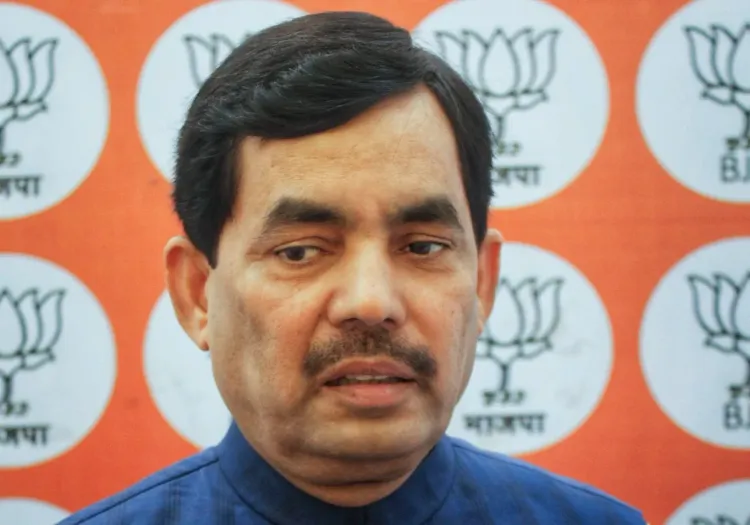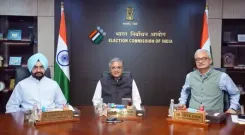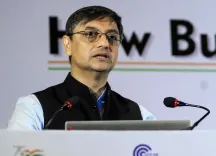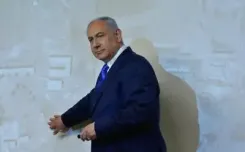Did Shahnawaz Hussain Support Salman Khurshid’s Views on Pakistan and Article 370?

Synopsis
Key Takeaways
- Shahnawaz Hussain expresses support for Salman Khurshid's remarks.
- Khurshid asserts that Pakistan initiated the ceasefire.
- Article 370 abrogation credited for stability in J&K.
- Operation Sindoor led to significant military successes against Pakistan.
- Political leaders face public scrutiny over military actions.
New Delhi, May 31 (NationPress) BJP leader Shahnawaz Hussain on Saturday expressed his support for the recent remarks made by senior Congress leader and former External Affairs Minister Salman Khurshid about Pakistan and Article 370, affirming that Khurshid’s comments were both accurate and indicative of diplomatic maturity.
Khurshid, who is currently on a diplomatic mission as part of a delegation headed by Janata Dal (United) leader Sanjay Jha, garnered attention this week after stating that it was Pakistan that sought a ceasefire, not India. He also lauded the abrogation of Article 370 in Jammu and Kashmir (J&K), attributing the region's enhanced stability and democratic advancement to this pivotal decision.
In response to Khurshid’s insights, Shahnawaz Hussain told IANS, “Salman Khurshid has articulated a profound truth. Since the abrogation of Article 370, J&K has witnessed significant growth. He accurately pointed out that Pakistan was not informed prior to the decision. With his extensive experience as a former Foreign Minister during the UPA government and key roles under Prime Minister Narasimha Rao, his statements are well-founded.”
Khurshid emphatically rejected the notion that India initiated contact with Pakistan, asserting, “It’s utterly ridiculous for anyone to claim that we reached out first. Why would we? It is abundantly clear that the call originated from the DGMO of Pakistan to the DGMO of India.”
He also praised the PM Modi administration for its decisive action in abolishing Article 370.
“Kashmir faced a significant issue for many years, largely stemming from the perception created by Article 370, which suggested it was distinct from the rest of the country. The abrogation has effectively addressed this issue,” he remarked.
Shahnawaz Hussain further commented on Prime Minister Narendra Modi’s recent two-day visit to Bihar.
“The Prime Minister reminded us of the jungle raj that existed during Lalu ji’s governance for 15 years. People still recall the hardships faced during those times. PM Modi’s commitments have yielded tangible results. In his address at Jhanjharpur, he reiterated that terrorists would be dealt with decisively—and that promise has been fulfilled,” Hussain stated.
He highlighted the achievements of Operation Sindoor, asserting, “Nine terrorist bases in Pakistan were dismantled, 11 air bases were targeted, over 100 terrorists were neutralized, and more than 50 Pakistani soldiers were killed. Following this, the citizens of Bihar warmly welcomed the Prime Minister.”
Clarifying the status of the military operation, he reiterated, “Operation Sindoor has not been halted; it is merely on pause. Should Pakistan engage in any further hostile actions, it will face the repercussions. There will be no leniency.”
Hussain also addressed comments from Telangana Chief Minister A. Revanth Reddy, who recently questioned PM Modi about the number of Rafale jets allegedly downed by the Pakistani military during Operation Sindoor. Reddy further suggested that had Rahul Gandhi been Prime Minister, India would have reclaimed Pakistan-Occupied Kashmir (PoK).
“Congress leaders faced public backlash in 2019 when they doubted the surgical and air strikes. They demanded proof—where were the strikes, how many terrorists were eliminated?” Hussain remarked.
“Following the events in Pahalgam on April 22, we commenced Operation Sindoor. This operation resulted in the destruction of nine terrorist camps, damage to 11 air bases, elimination of over 100 terrorists, and more than 50 Pakistani soldiers killed. Pakistan was compelled to request a ceasefire. This was a significant victory, and Indian soldiers are being recognized globally. Yet, Congress leaders like Revanth Reddy continue to demand proof.”
Condemning the Congress for what he labeled as “double standards,” Hussain added, “On one hand, they question the military’s actions, while on the other, they plan to initiate a 'Jai Hind Yatra'. The nation will not forget such actions. Congress needs to reflect on its missteps in 2019 and refrain from repeating them.”








